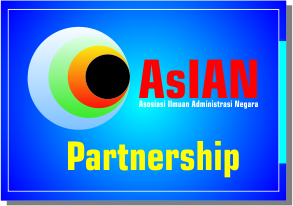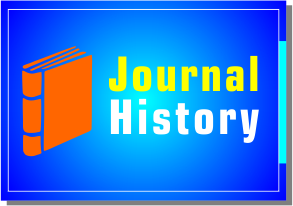Peran Pemerintah Desa dalam Pemberdayaan Masyarakat di Desa Jlegiwinangun Kecamatan Kutowinangun Kabupaten Kebumen
DOI:
https://doi.org/10.31334/transparansi.v5i1.2806Keywords:
Role, Village Government, Community Empowerment,Abstract
The Community Empowerment Program requires improvement and innovation to maximize community welfare and maximize social welfare in Jlegiwinangun village. Based on this background, it is necessary to examine the role of the village government in community empowerment in Jlegiwinangun village. The purpose of the study was to identify and analyze the role, obstacles, and efforts of the Jlegiwinangun Village Government in empowering the community in Jlegiwinangun Village. The theory used according to Soerjono Soekanto (2010) includes the ideal role (ideal roll), the role that should be (expected roll), the role that is actually carried out (actual roll). The study used qualitative methods with data collection techniques of observation, interviews, and documents. The results of this research are sufficient. The role of the village government is good in terms of implementing community empowerment programs. This can be seen from the program that has been running in the village of Jlegiwinangun. There are several strengths, namely that the community is less accepting of conditions and does not provide new ideas in improving human resources, and the formation of new business groups. Lack of experts in the implementation of training. Lack of education for marketing the results of the products or services produced so that they are not able to compete in the market. Lack of existing capital so that in its implementation it cannot be sustainable or stop halfway. So efforts are needed to mobilize strength in the implementation of community empowerment in Jlegiwinangun Village, namely the Government, experts from outside the village and also conducting comparative studies. The government encourages people to look for ideas for new businesses that are in accordance with local wisdom.References
Anwas, Ence Oos Mukhamad. 2013. Pemberdayaan Masyarakat Di Era Global. Bandung: Alfabeta.
Lasiman Sugiri. 2012. “Peranan Pemerintah Daerah Dalam Pemberdayaan Masyarakat.†Dosen Jurusan Administrasi Negara STISIPOL Dharma Wacana Metro 11(2):56–65.
Makhfudz, M. 2019. “Kontroversi Pelaksanaan Otonomi Daerah.†Jurnal Hukum 3(2):380–406.
Nur Wijayanti, S. 2021. “Hubungan Antara Pusat Dan Daerah Dalam Negara KesatuanRepublik Indonesia Berdasarkan Undang-Undang Nomor 23 Tahun 2014.†Amnesti: Jurnal Hukum 3(1):37–52.
Soares, A., R. Nurpratiwi, and M. Makmur. 2015. “Peranan Pemerintah Daerah DalSoares, A., Nurpratiwi, R., & Makmur, M. (2015). Peranan Pemerintah Daerah Dalam Perencanaan Pembangunan Daerah. Jurnal Ilmu Sosial Dan Ilmu Politik Universitas Tribhuwana Tunggadewi, 4(2), 42401.Am Perencanaan Pembangunan Dae.†Jurnal Ilmu Sosial Dan Ilmu Politik Universitas Tribhuwana Tunggadewi 4(2):42401.
Soekanto, Soerjono. 2010. Sosiologi: Suatu Pengantar. Jakarta: Rajawali Pers.
Downloads
Published
Issue
Section
License

This work is licensed under a Creative Commons Attribution-ShareAlike 4.0 International License
Please find the rights and licenses in Transparansi : Jurnal Ilmiah Ilmu Administrasi By submitting the article/manuscript of the article, the author(s) agree with this policy. No specific document sign-off is required.
- License
The commercial use of the article will be governed by the Creative Commons Attribution license as currently displayed on Creative Commons Attribution-ShareAlike 4.0 International License.
2. Author(s)' Warranties
The author warrants that the article is original, written by stated author(s), has not been published before, contains no unlawful statements, does not infringe the rights of others, is subject to copyright that is vested exclusively in the author and free of any third party rights, and that any necessary written permissions to quote from other sources have been obtained by the author(s).
3. User Rights
Transparansi : Jurnal Ilmiah Ilmu Administrasi spirit is to disseminate articles published are as free as possible. Under the Creative Commons license, Transparansi : Jurnal Ilmiah Ilmu Administrasi permits users to copy, distribute, display, and perform the work for non-commercial purposes only. Users will also need to attribute authors and Transparansi : Jurnal Ilmiah Ilmu Administrasi on distributing works in the journal and other media of publications.
4. Co-Authorship
If the article was jointly prepared by more than one author, any authors submitting the manuscript warrants that he/she has been authorized by all co-authors to be agreed on this copyright and license notice (agreement) on their behalf, and agrees to inform his/her co-authors of the terms of this policy. Transparansi : Jurnal Ilmiah Ilmu Administrasi will not be held liable for anything that may arise due to the author(s) internal dispute. Transparansi : Jurnal Ilmiah Ilmu Administrasi will only communicate with the corresponding author.
5. Miscellaneous
Transparansi : Jurnal Ilmiah Ilmu Administrasi will publish the article (or have it published) in the journal if the article’s editorial process is successfully completed. Transparansi : Jurnal Ilmiah Ilmu Administrasi editors may modify the article to a style of punctuation, spelling, capitalization, referencing and usage that deems appropriate. The author acknowledges that the article may be published so that it will be publicly accessible and such access will be free of charge for the readers as mentioned in point 3.
Every accepted manuscript should be accompanied by "Copyright Transfer Agreement"prior to the article publication.











